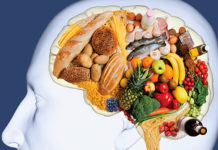Nutrition Above the Neck: Why is This Topic Met With Hostility?
Why do people readily accept the data showing that nutrients are good for our hearts, and for prevention and (now perhaps) treatment of cancer . . . but they find it so hard to accept the use of nutrients to make us feel better mentally?
Study Finds the Spice Curcumin Fights Depression
The study finds that curcumin may be as efficacious as antidepressant medications, particularly for atypical depression
Thinking of Schizophrenia as Normal Can Be Helpful
Daniel Helman had a psychotic episode at age 20, but has been off all psychiatric medications since 2006 and is now 44. In Schizophrenia...
Beyond the Medicalization of Insomnia
There is hope that the truth about sleeping pills will become more commonplace. As it does, however, we are faced with an even greater challenge: to move beyond the medicalization of insomnia in order to help people sleep better naturally. The alternative paradigm I suggest is that nutrition is a primary cure for insomnia.
If Not Meds, Then WHAT?
A great deal of the information published on MadInAmerica is devoted to this very important question, so many constructive ideas are often presented. We think that nutrition and diet should always be part of the conversation.
B Vitamins Reduce Schizophrenia Symptoms
From Hindustan Times: Treatments using high-dose B-vitamins, including B6, B8, and B12, can considerably reduce symptoms of schizophrenia.
Article →
“The Future of Psychiatry May Be Inside Your Stomach”
The Verge reviews the growing body of evidence of the psychological impacts of different types of gastrointestinal microbes, and interviews Boston-area psychiatrist James Greenblat...
Food Insecurity Linked to Mental Health Globally
Global analysis of 149 countries finds food insecurity is associated with poorer mental health.
“The Tantalizing Links between Gut Microbes and the Brain”
Nature magazine reports on recent discoveries by neuroscientists that microbes that live in the intestinal track may have an influence on brain development and behavior. “Researchers have drawn links between gastrointestinal pathology and psychiatric neurological conditions such as anxiety, depression, autism, schizophrenia and neurodegenerative disorders—but they are just links.”
Study Explores Correlates of Low-Level Physical Activity and Psychosis
A study examines the variables correlated with low levels of physical activity in persons diagnosed with psychosis in low and middle-income countries
Catching My Breath After A Panicked Journey
$24,000 later and no one knew what was wrong with me. They sent me home with a bag of pills. After being in the hospital, I developed a fear and mistrust of doctors. My general practitioner suggested antidepressants. More pills. It was all they could recommend. I wouldn’t take them. My anxiety worsened. I was obsessed with the idea that if I slept, I would die. So, I stayed awake as much as I could. For an entire year, this was how I lived.
Despite Claims, EPA Supplement Does Not Improve ADHD Symptoms in Youth
A new study reports that the supplement EPA improved ADHD symptoms but a closer look calls these results into question.
A Healing Journey: Leaving Psychiatry Behind
The world calls what was "wrong" with me "bipolar." I prefer the notion that I went through a birth process to become the healer that I am today. I can't be silent because I know there are people like I was who are trapped and may not realize it yet. When they begin to see the prison bars that surround them, I want to be there for them as others were for me.
I Almost Got Hit by a Lightning Bolt
I am so thankful that my brain healed from the damage caused by psychiatric medications. Most importantly, finding my purpose in life and living an authentic life helped to ground me and prevent further psychosis. Psychosis is the psyche’s cry for transformation and healing. When one listens to the call, one is brought from darkness to light.
“Sweat is the Best Antidepressant”
The University of Toronto recently opened a Mental Health and Physical Activity Research Centre to work with individual students, and to study the link...
Baycrest Creates First Canadian Brain Health Food Guide
From Medical Xpress: Baycrest scientists have developed the first Canadian Brain Health Food Guide, which provides older adults with guidelines and advice on maintaining a healthy...
“New Research Links Contact with Nature to Community Cohesion and Reduced Crime”
The Pacific Standard highlights new research out of the University of Cardiff that found the more green space there is in a neighborhood, the less crime. “The more a person felt connected to nature, the more they felt connected to others in their neighborhoods.”
Jeopardizing Your Wife to Prove a Point: Pellagra as an Example of Deficit
The relevance of pellagra to psychiatry is that it also can present with psychosis, obsessions, mania, depression and confusion. It involves the main organs of the brain, the gut and the skin – many referred to the 4 Ds: dementia, diarrhoea, dermatitis and death. Pellagra (meaning rough skin) was first described in 1735. At the time, the cause was unknown but it was associated with poverty. Although linked to the poor person’s diet (often consisting mainly of corn products), the going wisdom at that time was that it was contagious (Pellagrans, as they were called, tended to live in close proximity) and was perhaps hereditary (sound familiar?).
Bringing Meals to People May Reduce Healthcare Costs
From The Los Angeles Times: A recent study found that regularly delivering meals to people with food insecurity can prevent health crises and drive down...
Omega-3 Screening for Psychiatric Symptoms?
There is a substantial body of evidence suggesting that not getting enough omega-3 fatty acids in your diet may be connected to a diverse array of psychiatric symptoms. In a new study published this month, psychiatrist Robert McNamara and Erik Messamore provide an overview of the evidence and call for screening of omega-3 deficiency in people experiencing symptoms associated with ADHD, depression, mood disorders, and psychosis.
Animal Study Supports Influence of Probiotics on Resilience to Stress
Researchers experimenting on mice found that Lactobacillus—the probiotic commonly found in yogurt—may help reduce depressive symptoms in reaction to chronic stressors. But human studies have found mixed results.
Exactly How Do Gut Microbes Shape Human Behavior?
-University College London researchers review the primary physiological mechanisms by which gut microbes can influence the human brain.
Non-Pharmacological Interventions More Effective For Health in Schizophrenia
Review compares the effectiveness of pharmacological and non-pharmacological interventions for improving physical health outcomes in people diagnosed with schizophrenia.
Meditation and Exercise Reduce Depression Symptoms 40%
A combination of exercise and meditation done twice a week over two months may reduce depression symptoms by 40 percent, according to a new study published open-access this month in Translational Psychiatry. Following the eight-week intervention, the student participants that had previously been diagnosed with major depressive disorder (MDD) reported significantly less symptoms and ruminative thoughts and students without any such diagnoses also showed remarkable improvements.
Growing Research Connects Nutrition and Mental Health
A new article reviews studies in the field of nutritional psychiatry and how nutrition can prevent and treat mental health issues.























